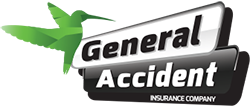Safeguarding Your Vehicle During a Hurricane: Essential Tips for Car Owners

In the Caribbean the official hurricane season runs between 1 June and 30 November. While securing your home is typically a priority, it's equally important not to overlook the safety of your vehicles. Hurricanes bring strong winds, heavy rainfall, and potential flying debris, which can all pose a significant threat to your car. By following a few essential precautions, you can safeguard your vehicle and minimize potential damage during these powerful storms. In this blog post, we will outline some crucial steps to protect your car during a hurricane.
1. Stay informed and plan ahead
One of the first steps in preparing for a hurricane is to stay informed about the storm’s progress through reliable weather sources. Listen to local authorities and follow their recommendations and evacuation orders, if necessary. By staying informed, you can better plan for the protection of your car and make timely decisions.
2. Secure covered parking
If you have access to covered parking, such as a garage, carport, or parking structure, make use of it. Parking your vehicle in a sheltered area can offer a significant advantage during a hurricane. It provides protection against flying debris, hail, and heavy rainfall, reducing the risk of damage.
3. Park away from trees and power lines
If covered parking isn’t available, find a safe location to park your car away from trees, power lines, and objects that may fall during strong winds. Falling branches and debris can cause severe damage to your vehicle, including broken windows, dented bodywork, or even structural damage. Seek an open area away from potential hazards to minimize the risk.
4. Use storm shutters or blankets
If you anticipate that your vehicle will be exposed to flying debris, consider using storm shutters or heavy blankets to protect it. Securely cover your car, paying special attention to the windshield and windows. This precaution can help prevent damage from projectiles propelled by hurricane-force winds.
5. Remove loose objects and valuables
Before the hurricane strikes, take the time to remove any loose objects, tools, or equipment from both the interior and trunk of your vehicle. These items can become projectiles during high winds, potentially damaging your car or causing harm to others. Additionally, remove any valuable items to protect them from theft or water damage.
6. Maintain a full tank of fuel
As a hurricane approaches, it is advisable to keep your vehicle's fuel tank topped up. A full tank can be beneficial if you need to evacuate quickly or if fuel becomes scarce in the aftermath of the storm. It also adds weight to your car, making it more stable during high winds.
7. Consider comprehensive insurance coverage
Review your insurance policy and ensure you have comprehensive coverage that includes protection against natural disasters. Confirm the details of your coverage, deductibles, and the process for filing a claim. Being adequately insured can provide peace of mind during the hurricane season. If you are not already comprehensively insured speak with a GenAc representative to get started.
Protecting your vehicle during a hurricane requires thoughtful planning and proactive measures. Taking these precautions will help safeguard your vehicle and ensure you’re prepared to weather the storm.


